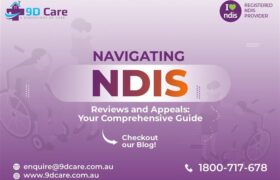Early Childhood Disability
Despite all the best efforts at prevention, children may be born with or develop the following disabilities in early childhood, from the causes which are not yet fully understood or could be prevented.
Early childhood disability refers to a broad range of physical, mental, sensory, or developmental impairments that affect children from birth to around 8 years of age. These disabilities can significantly impact a child’s overall functioning, including their ability to learn, communicate, interact with others, and perform daily activities.
Below are some of the key points about early childhood disability:
- Types of Disabilities:
Early childhood disabilities can include conditions such as:
- Cerebral palsy
- Down syndrome
- Autism spectrum disorder
- Hearing impairment
- Visual impairment
- Learning disabilities
- Speech and language disorders
- Developmental delays.
- Causes of Disabilities:
Disabilities in early childhood can have various causes. Some disabilities are congenital, meaning they are present at birth, while others may be acquired due to factors such as illness, injury, genetic conditions, or exposure to toxins during pregnancy or early development.
- Impact on Development:
Early childhood disabilities can have a significant impact on a child’s physical, cognitive, social, and emotional development. They may affect the child’s motor skills, speech and language abilities, cognitive functioning, social interactions, and adaptive behaviour.
- Early Identification and Intervention:
Early identification of disabilities is crucial for providing timely and appropriate interventions. Screening tools, developmental assessments, and medical evaluations are used to identify potential disabilities and determine the most effective interventions and support services.
- Support and Services:
Children with early childhood disabilities often require specialized support and services to address their unique needs. These can include early intervention programs, special education services, therapy (such as occupational, physical, or speech therapy), assistive devices, and accommodations to promote their participation and inclusion in various environments.
- Family Involvement:
Families play a vital role in supporting children with disabilities. They may work closely with healthcare professionals, therapists, educators, and other service providers to ensure their child receives the necessary support. Parent education and training programs are often available to empower families and enhance their ability to meet their child’s needs.
- Inclusive Education:
In recent years, there has been a growing emphasis on inclusive education, which promotes the inclusion of children with disabilities in regular classrooms alongside their typically developing peers. Inclusive education aims to provide appropriate support and accommodations to facilitate the full participation and learning of all children.
It’s important to note that early childhood disabilities can vary widely in terms of their nature, severity, and individual impact. Each child’s needs should be assessed on an individual basis, and interventions should be tailored to their specific requirements.
Early identification of disabilities allows for prompt initiation of appropriate interventions and therapies. During the early years, a child’s brain undergoes rapid development and is highly adaptable. Early diagnosis provides families with the opportunity to access support services, resources, and information tailored to their child’s specific needs. It enables the development of individualized education plans (IEPs) or other specialized educational programs that cater to the unique needs of children with disabilities. These plans ensure that children receive appropriate educational support and accommodations to facilitate their learning and participation in school. Research suggests that early diagnosis and intervention can lead to improved long-term outcomes for children with disabilities. It may enhance their cognitive abilities, language and communication skills, motor development, social interactions, and overall quality of life.
To cut it short, early diagnosis of early childhood disabilities is crucial as it provides an opportunity for timely intervention, optimal brain development, support for families, individualized education, social and emotional well-being, and improved long-term outcomes. It empowers children with disabilities to reach their full potential and enhances their overall well-being.
This is when 9Dcare steps in and helps you and your family with the required services.
Our early childhood approach aims to:
- To offer prompt assistance to ensure that you have the necessary resources available to you.
- Provide you with information regarding the most effective early childhood intervention supports and guide you on how you can assist your child.
- To enhance your confidence and ability to handle and address your child’s support requirements.
- To increase your child’s capacity to engage in the activities they require or desire to participate in throughout their daily routines.
- To promote greater inclusion and active involvement of your child in mainstream and community settings, such as childcare or recreational environments.
- Provide you with information about additional support services, as well as refer you to them if necessary, such as parent support groups.
Understanding the National Disability Insurance Scheme (NDIS) pricing and fees is vital for participants and service providers to navigate the.
As of 9th September, to 7th October a consultation period is in place for making legal changes to the NDIS.
The National Disability Insurance Scheme (NDIS) is crucial in supporting individuals with disabilities in Australia. Navigating NDIS reviews and appeals.
The primary goal of assistive products is to retain or improve a person’s functioning and independence, thereby promoting their well-being..
One of the key sectors of NDIS services is support coordination. We highly recommend that our participants who have the.
What does a support coordinator do each day? How do they support you? And what makes a good support coordinator? “It.
Our team can come to you to discuss face to face your needs and discuss how we can best support you to achieve your goals. Contact us today to arrange an appointment.






